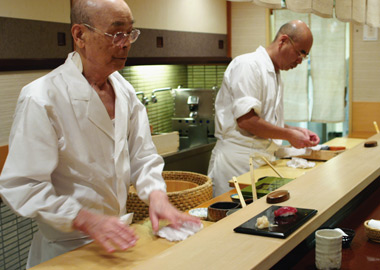One of the oddities of independent movie-making in America is that the people involved in the process always seem to be on the way to something else. Many—most, perhaps—seem independent more by circumstance than temperament; either they’re just starting out, or they work in a genre that occupies too small a niche for mainstream producers, or maybe they’re just bad. Whatever the reasons, even the noblest ones are often swept aside when the studios come by, riffling their fistfuls of dollars. Filmmakers leap into the Hollywood world, all the while promising to remember the world they left behind.
John Sayles is one of those who stayed. A seminal figure in the history of American indie cinema, Sayles has always been independent by design. Success as a writer-director came early, but Sayles has always parlayed his critical victories into further filmmaking opportunities instead of grabbing at easy money. His resulting filmography is an impressive list of socially conscious art-house favorites that spans more than three decades and deals with a wide variety of our national ills: racism, corruption, and the eternal problem of just living.
This Thursday, April 19 at 7 p.m., the filmmaker comes to Amherst Cinema for a special screening of his new film Amigo, presented in collaboration with Amherst College (in a nod to Sayles’ multitude of talents, both the Department of English and the Program in Film and Media Studies are sponsors). Set during the Philippine-American War—an often-overlooked bit of our history—Sayles’ newest work picks apart the backstory of that military conflict, which found soldiers who had signed up to help free oppressed Cubans suddenly ordered to fight Filipinos in order to deny them the same freedom.
Joel Torre stars as Rafael, the mayor of a U.S.-occupied village, who finds himself backed into a corner by Colonel Hardacre (Chris Cooper, an actor whose first film role was in Sayles’ Matewan, 25 years ago), an American tasked with hunting down Filipino guerillas. As it happens, the head of the local guerillas is Rafael’s brother Simon, which places Rafael in a tough spot, but one sadly familiar to anyone living in an occupied country.
*
Over at Pleasant Street Theater this week, Jiro Dreams of Sushi tells a remarkable story about Jiro Ono, the 85-year-old owner of Sukiyabashi Jiro—considered by many to be the world’s greatest sushi destination, despite being located in a Tokyo subway station.
Defying the American real estate mantra of location, Jiro’s success relies wholly on his artistry, not only in the plating of his dishes, but in the selection of the fish, and the behind-the-scenes preparation of the meats—the deboning and filleting so few of us do anymore. The payoff? A three-star Michelin review of his shop, and sushi pilgrims calling months in advance to secure a seat at his bar. Through it all, Jiro remains focused on his work, always striving to make the next dish his best. But Jiro’s success—and his work ethic—also create problems for his eldest son Yoshikazu. Will he ever be given the chance to take over the shop? And given his father’s reputation, is it wise even to try? As one bystander says, “Jiro’s son needs to be twice as good just to be equal!”
*
Also this week: The 2001 Norwegian film Elling makes a long-delayed return trip to the Valley. The country’s biggest box office hit is the tale of two grown men who meet in a state-run home. Assigned to live together in an apartment of their own, the pair must find a way to navigate a modern world they are decidedly unsure about. A gentler, quirkier Odd Couple, Elling and Kjell come to Pothole Pictures on Friday and Saturday, screening in Shelburne Falls’ Memorial Hall.
Jack Brown can be reached at cinemadope@gmail.com.



